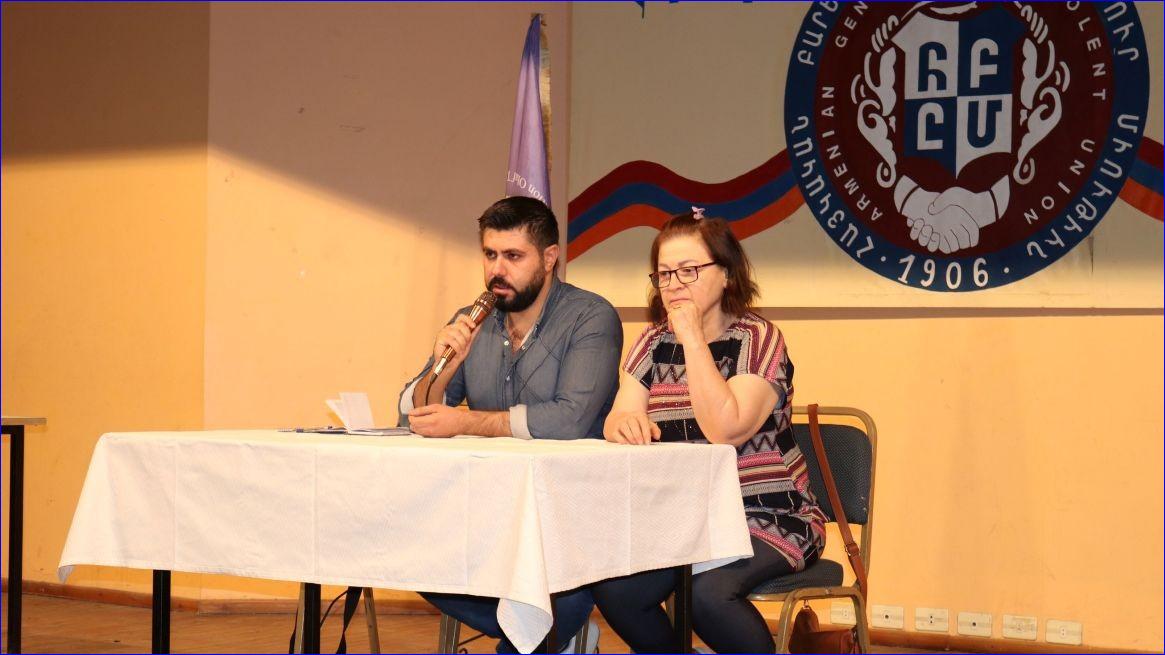


The Olaf Taw Association for Syriac Language organized the event at the Armenian Benevolent Association Hall, bringing together representatives from the Bethnahrin National Council (Mawtbo Umthoyo d'Bethnahrin, MUB), educators, and families of students to discuss the current state of Syriac-language education within the Democratic Autonomous Administration of the Region of North and East Syria (DAARNES).
Discussions focused on the central dilemma facing the Assyrian community in the Gozarto (Jazira) Canton of how to preserve their linguistic and cultural identity through a formal education system while ensuring that the curriculum and its graduates gain wider academic recognition.
The Olaf Taw Association presented the Syriac curriculum currently in use in DAARNES schools, outlining its teaching methods and explaining that it was designed to reflect the unique linguistic and cultural identity of the Assyrian people. Association officials described the curriculum as an educational model that places local identity at the heart of learning rather than on its margins.
They emphasized that the curriculum remains open to development and improvement so that it can eventually meet national and international academic standards while maintaining its local character.
However, many families expressed strong concerns about their children's academic future, particularly regarding whether high school graduates following this curriculum would be able to enroll in Syrian or international universities.
In response, representatives of the Olaf Taw Association clarified that universities within DAARNES accept these certificates and that efforts are underway to establish future scholarship opportunities abroad. Despite these assurances, skepticism persisted due to the curriculum's lack of official recognition from either the Syrian government or international academic institutions.
One of the session's most notable interventions came from Ruba al-Farihat, an official from the Syriac Cultural Association. Originally from Suwayda and a graduate of Damascus University, she now works within the DAARNES educational framework.
"If the designers of the official Syrian curriculum are ordinary people with educational backgrounds," she said, "then we are equally capable of creating a stronger curriculum -- one that truly expresses our identity."
Addressing concerns over recognition, she added, "Recognition may come today, tomorrow, or even in a hundred years, but if we do not demand our rights, we will never receive them."
Her words resonated deeply with some attendees, capturing a shared conviction among that action must come before recognition -- not the other way around.
This educational debate unfolds within a broader political context. While DAARNES aims to establish an inclusive education system that respects ethnic and linguistic diversity, the Syrian government continues to reject it, viewing the curricula as outside the official national framework.
As a result, Syriac institutions are navigating a delicate balance of defending their historical and cultural right to mother-tongue education while also striving to secure the academic and professional future of their youth.
In this quiet but crucial struggle -- fought not in streets but in classrooms and lecture halls -- the Olaf Taw Association has emerged as a central force in advocating for a more localized educational curricula.
As the dialogue concluded, one message stood out clearly. The path toward a locally and internationally recognized Syriac education system is likely to be long. Yet through such discussions, uniting families, institutions, and experts, the Assyrian people continue their steadfast effort to anchor their language and identity amid the profound transformations reshaping Syria and the region.

or register to post a comment.